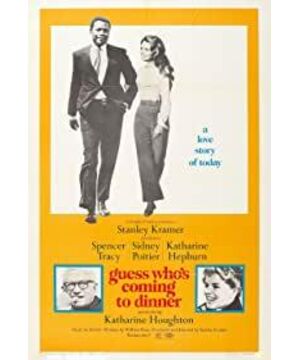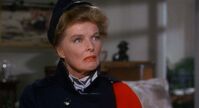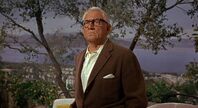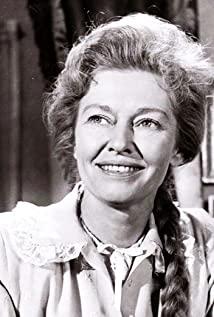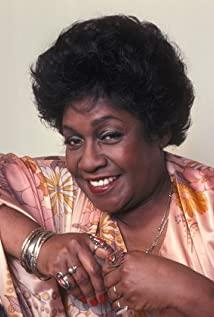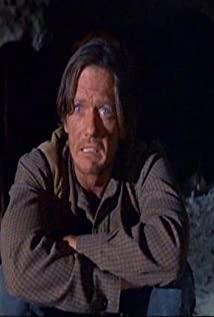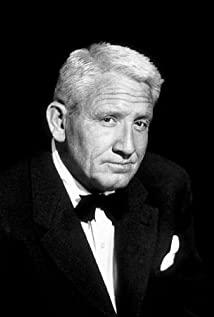"Guess Who's Coming To Dinner", Stanley Kramer's film is believed to tell a "today's love story" and successfully sparked an upsurge against Racism . Hollywood critics echoed this as a "prophetic movie." . Indeed, it has taken the lead in dealing with Racism, liberalism and hypocrisy. You might even think that this is a great movie with lofty ideals. However, no one would think that "Guess Who's Coming To Dinner" tells a true story. No matter how you look at it, in the real world, John and Joey's love seems unconvincing, including a solution that everyone is happy in the end. However, the conflict faced by the little lovers is real.
Matt's monologue at the climax of the movie is impressive. When we see the reaction of this elderly white libertarian to her daughter's choice, it is clear that the emotional extreme of this movie is reached. If you feel that interracial marriage is wrong at this time, then you might be thinking: "This is the way it is." If you stand firmly on this young couple's side, you might think: "People should change them." "Guess Who's Coming To Dinner" has been in theaters for nearly forty years. No one thinks this movie will be outdated, but it cannot be called a great one, at best it can only be regarded as a "sweet" work. Regarding Racism , both in terms of content and form, this film lacks the in-depth thinking and complexity that it should have: racial issues are certainly a related theme of the film, but it lacks a realistic approach, as in the United States in the 1960s. The social environment is not very relevant.
The scene that still gave us acoustic resonance has nothing to do with the topic of race. When John had a private conversation with his father, he was furious and fought back against his father’s view that marrying a white girl was betraying the family: "Listen to me, you said you don’t want to tell me how to live my life. But you think you have been What are you doing? Tell me, what power do I have, no power, and, you think you have done so much for me, I owe you. Let me tell you, I don’t owe you anything!" John tried There is no resentment when he expresses "I don't owe you anything". He is just despair and pity. What this scene expresses is the classic theme of father-son confrontation. John is in his thirties, has been married once, and has a good job. No matter how you look at it, he is an adult. However, John had to argue with his father so that he could understand himself and understand himself. Hearing an adult lament that the relationship with his father is exciting. This situation seems to happen everywhere: "I am not yours. You don’t need to tell me when and where I made a mistake. Dad, you don’t know what I am. Who, you don’t know how I feel, what I think. Even if I try my best to explain for the rest of your life, it’s useless, you’ll never understand!” John’s complaint brought the movie back to the real world, no matter what he said, it’s impossible. Let father understand what he is doing. Finally, when John's emotions slowly calmed down, he said the touching dialogue: "Dad, you are my father and I am your son. I love you, both in the past and in the future. , But, you think of yourself as a man of color, and I think of myself as a man."
If this is a movie about Racism , the ending is difficult to accept, because love seems to conquer everything. Of course, you can say that this movie involves Racism, there is nothing wrong, but it is only "involved", it has not reached the level of "testing". "Guess Who's Coming To Dinner" is not a "today's love story", it belongs to yesterday, today, tomorrow, or any day, it is just a love story.


